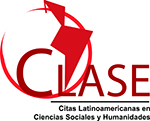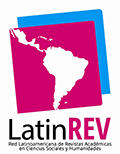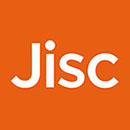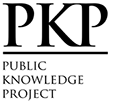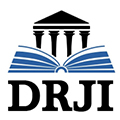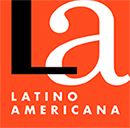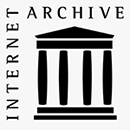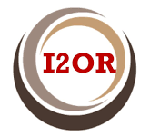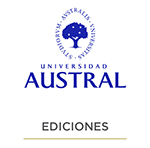Drugs as patentable subject and the setting of COVID-19 in the license of Article 45 of Law 24,481
Abstract
At the beginning of 2020, the World Health Organization declared COVID-19 a Pandemic. It is not necessary to do an exhaustive analysis to notice the important health, economic and legal consequences that it has had.
In particular, Patent Law plays an important role in this regard, the possibility of a vaccine being patented in the country with the current ordinance of Law No. 24,481 and its amendments, and that the human right of property that the holder has on it, has a strong impact on the incentive to technical and scientific development. A right that cannot be analyzed in isolation, but in the context of the health emergency that is prevailing worldwide today and the public interest in the protection of another human right such as public health.
The aforementioned technical development encouraged by the patent system is part of the interest not only of the legal community, but of society as a whole. In this paper we will analyze the context of the pandemic and Intellectual Property Law, the historical evolution in Argentine legislation regarding the possibility of patenting pharmacological products and procedures, the requirements that the vaccine must meet to be considered patentable matter in terms of the law, the procedure to be followed before the INPI for its patenting, the rights that the law grants to the owner of the vaccine patent and its framing in the Compulsory License in the context of a health emergency of Art. 45 of the Patent Law.
Downloads
References
Balbín, C. F. (2018). Manual de Derecho Administrativo (4a ed.). Ciudad Autónoma de Buenos Aires: La Ley.
Beier, F. K. (1986). La importancia del sistema de patentes para el progreso técnico, económico y social. Derechos Intelectuales, 1, 11-37.
Bensadon, M. y Sánchez Echagüe, I. (2008). Criterios de patentabilidad en el ámbito químico-farmacéutico: un análisis comparativo. Derechos Intelectuales, 14, 17-72.
Causse, J. R. (2017). Manual de derechos reales. Ciudad Autónoma de Buenos Aires: Astrea.
Chaloupka, P. (1987). ¿In dubio contra patentem? Derechos Intelectuales, 2, 34-73.
García Sellart, M. (2001). Licencias Obligatorias. Derechos Intelectuales, 9, 160-175.
Iannello, P. A. (2013a). Algunos fundamentos ético normativos sobre las patentes de invención en temas de medicinas esenciales. En Schötz, G. J. (Coord.), Patentes y Medicinas Esenciales. La armonización entre el derecho a la salud y la propiedad intelectual (1ª ed., pp. 51-71). Buenos Aires: Heliasta.
Iannello, P. A. (2013b). Principios y Propiedad Intelectual. El balance de derechos en el caso de licencias compulsivas a la luz de los principios de Buena Fe y Proporcionalidad en el Derecho Internacional. En Schötz, G. J. (Coord.), Patentes y Medicinas Esenciales. La armonización entre el derecho a la salud y la propiedad intelectual (1ª ed., pp. ). Buenos Aires: Heliasta.
Kolker, P. (1996). GATT-ADPIC y la industria farmacéutica. Derechos Intelectuales, 7, 15-29.
Laquis, M. A. (s.f.). Indispensable reconsideración de la ley 17.011 de adhesión al Convenio de París, LL, 147-1147.
Migliore, J. (2013). Propiedad intelectual y doctrina social de la Iglesia. En Schötz, G. J. (Coord.), Patentes y Medicinas Esenciales. La armonización entre el derecho a la salud y la propiedad intelectual (1ª ed., pp. 23-49). Buenos Aires: Heliasta.
O’Farrell, E. (1988). Patentes y medicamentos. Derechos Intelectuales, 3, 36-49.
Organización Mundial del Comercio. (2001). Declaración relativa al acuerdo sobre los ADPIC y la salud pública. https://www.wto.org/spanish/thewto_s/minist_s/min01_s/mindecl_trips_s.htm
Organización Mundial del Comercio. (2002). Los acuerdos de la OMC y la salud pública - un estudio conjunto de la OMS y la Secretaría de la OMC (Comunicado de prensa 310). http://www.wto.org/spanish/news_s/pres02_s/pr310_s.htm.
Panadeiros, M. (1991). Patentamiento en la industria farmacéutica argentina. Derechos Intelectuales, 5, 54-62.
Quiroga Lavié, H. (2001). Derecho constitucional argentino (Tomo 2). Santa Fe: Rubinzal-Culzoni.
Rozansky, F. (1994). Armonización para la innovación y el intercambio. Derechos Intelectuales, 6, 38-45.
Rozansky, F. (1996). Nueva legislación argentina de patentes de invención. Derechos Intelectuales, 7, 124-148.
Sánchez Echagüe, I. (2007). Protección de los datos de prueba para el registro de productos farmacéuticos. Derechos Intelectuales, 13, 170-195.
Schötz, G. J. (2013a). El derecho a la salud y el derecho de propiedad como parte del bien común de la comunidad internacional. En Schötz, G. J. (Coord.), Patentes y Medicinas Esenciales. La armonización entre el derecho a la salud y la propiedad intelectual (1ª ed., pp. 73-99). Buenos Aires: Heliasta.
Schötz, G. J. (2013b). El derecho a la salud. En Schötz, G. J. (Coord.), Patentes y Medicinas Esenciales. La armonización entre el derecho a la salud y la propiedad intelectual (1ª ed., pp. 101-125). Buenos Aires: Heliasta.
Schötz, G. J. (2013c). El Derecho de Propiedad. En Schötz, G. J. (Coord.), Patentes y Medicinas Esenciales. La armonización entre el derecho a la salud y la propiedad intelectual (1ª ed., pp. 127-150). Buenos Aires: Heliasta.
Schötz, G. J. (2013d). El conflicto de derechos. En Schötz, G. J. (Coord.), Patentes y Medicinas Esenciales. La armonización entre el derecho a la salud y la propiedad intelectual (1ª ed., pp. 152-182). Buenos Aires: Heliasta.
Schötz, G. J. y Rapela, M. (2020). Covid-19, Derechos de Propiedad Intelectual y Licencias Obligatorias; Revista Jurídica La Ley, 2020-C. https://papers.ssrn.com/sol3/papers.cfm?abstract_id=3631032.
Silberston A. (1987). The economic importance of patents. Londres: Common Law Institute of Intellectual Property.
Vázquez, A. R. (1991). Patentes Farmacéuticas. Derecho argentino y comparado. Derechos Intelectuales, 5, 38-53.
Vigo, R. L. (2014). Conferencia inaugural. Primer Congreso Internacional de Filosofía del Derecho. Escuela Judicial del Estado de México, México, 6 al 10 de octubre de 2014, Interpretación (argumentación) jurídica en el estado de derecho constitucional. Santa Fe: Rubinzal-Culzoni.
Zuccherino, D. R. y Mitelman, C. O. (1994). Una sólida protección de los derechos de propiedad intelectual como herramienta de desarrollo económico. El caso particular de los productos farmacéuticos, Derechos Intelectuales, 6, 80-109.
Zuccherino, D. R. y Mitelman, C. O. (2008). Criterios de patentabilidad en el ámbito químico-farmacéutico. Un análisis comparativo. En Derechos Intelectuales (Vol. 14, pp. 80-109). Buenos Aires: Astrea.
Copyright (c) 2020 Martín Ugalde

This work is licensed under a Creative Commons Attribution-NonCommercial-NoDerivatives 4.0 International License.
This license allows the copy, distribution, exhibition and representation of the work provided authorship is acknowledged and the work is properly quoted. Commercial use of the original work or the generation of derived works are not allowed.
The authors hereby guarantee the right to the first publication of the work to the Revista Iberoamericana de la Propiedad Intelectual.









